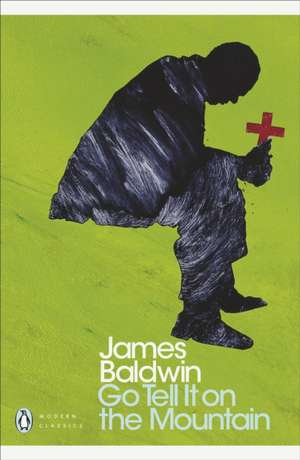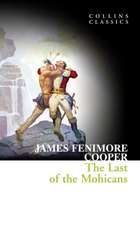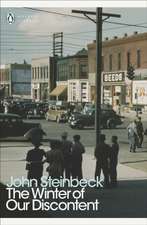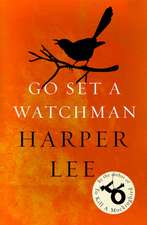Go Tell it on the Mountain: Penguin Modern Classics
Autor James Baldwin Introducere de Andrew O'Haganen Limba Engleză Paperback – 3 oct 2001
'I had to deal with what hurt me most. I had to deal with my father.'
Drawing on James Baldwin's own boyhood in a religious community in 1930s Harlem, his first novel tells the story of young Johnny Grimes. Johnny is destined to become a preacher like his father, Gabriel, at the Temple of the Fire Baptized, where the church swells with song and it is as if 'the Holy Ghost were riding on the air'. But he feels only scalding hatred for Gabriel, whose fear and fanaticism lead him to abuse his family. Johnny vows that, for him, things will be different. This blazing tale is full of passion and guilt, of secret sinners and prayers singing on the wind.
'His prose hit me, almost winding me with its intensity. I'd never read a novel that described loneliness and desire with such burning eloquence' Douglas Field,Guardian
'A beautiful, enduring, spirtual song of a novel' Andrew O'Hagan
| Toate formatele și edițiile | Preț | Express |
|---|---|---|
| Paperback (2) | 53.14 lei 22-33 zile | +19.06 lei 7-13 zile |
| Penguin Books – 3 oct 2001 | 53.14 lei 22-33 zile | +19.06 lei 7-13 zile |
| VINTAGE BOOKS – 11 sep 2013 | 87.02 lei 3-5 săpt. | |
| Hardback (2) | 86.07 lei 22-33 zile | +32.15 lei 7-13 zile |
| EVERYMAN – 4 feb 2016 | 86.07 lei 22-33 zile | +32.15 lei 7-13 zile |
| Everyman's Library – 29 feb 2016 | 141.48 lei 3-5 săpt. |
Din seria Penguin Modern Classics
- 17%
 Preț: 41.41 lei
Preț: 41.41 lei -
 Preț: 82.90 lei
Preț: 82.90 lei -
 Preț: 80.98 lei
Preț: 80.98 lei - 15%
 Preț: 48.87 lei
Preț: 48.87 lei - 17%
 Preț: 52.07 lei
Preț: 52.07 lei - 19%
 Preț: 59.39 lei
Preț: 59.39 lei - 18%
 Preț: 46.05 lei
Preț: 46.05 lei - 17%
 Preț: 52.49 lei
Preț: 52.49 lei -
 Preț: 69.06 lei
Preț: 69.06 lei - 16%
 Preț: 58.66 lei
Preț: 58.66 lei - 17%
 Preț: 51.67 lei
Preț: 51.67 lei -
 Preț: 81.84 lei
Preț: 81.84 lei - 18%
 Preț: 46.25 lei
Preț: 46.25 lei -
 Preț: 97.20 lei
Preț: 97.20 lei - 17%
 Preț: 52.33 lei
Preț: 52.33 lei - 15%
 Preț: 48.90 lei
Preț: 48.90 lei - 16%
 Preț: 53.55 lei
Preț: 53.55 lei - 18%
 Preț: 51.39 lei
Preț: 51.39 lei -
 Preț: 63.28 lei
Preț: 63.28 lei - 16%
 Preț: 53.93 lei
Preț: 53.93 lei - 18%
 Preț: 51.00 lei
Preț: 51.00 lei - 15%
 Preț: 49.40 lei
Preț: 49.40 lei - 15%
 Preț: 55.26 lei
Preț: 55.26 lei - 16%
 Preț: 48.30 lei
Preț: 48.30 lei - 17%
 Preț: 52.10 lei
Preț: 52.10 lei -
 Preț: 81.61 lei
Preț: 81.61 lei - 17%
 Preț: 68.49 lei
Preț: 68.49 lei - 18%
 Preț: 46.25 lei
Preț: 46.25 lei - 18%
 Preț: 46.02 lei
Preț: 46.02 lei - 16%
 Preț: 42.26 lei
Preț: 42.26 lei - 17%
 Preț: 51.66 lei
Preț: 51.66 lei - 16%
 Preț: 48.45 lei
Preț: 48.45 lei - 16%
 Preț: 42.69 lei
Preț: 42.69 lei - 15%
 Preț: 54.63 lei
Preț: 54.63 lei - 18%
 Preț: 46.31 lei
Preț: 46.31 lei - 18%
 Preț: 46.31 lei
Preț: 46.31 lei - 16%
 Preț: 53.59 lei
Preț: 53.59 lei - 16%
 Preț: 53.11 lei
Preț: 53.11 lei -
 Preț: 95.04 lei
Preț: 95.04 lei - 16%
 Preț: 79.93 lei
Preț: 79.93 lei - 18%
 Preț: 46.02 lei
Preț: 46.02 lei - 16%
 Preț: 68.94 lei
Preț: 68.94 lei -
 Preț: 81.35 lei
Preț: 81.35 lei - 17%
 Preț: 51.60 lei
Preț: 51.60 lei - 18%
 Preț: 51.38 lei
Preț: 51.38 lei - 16%
 Preț: 53.36 lei
Preț: 53.36 lei - 18%
 Preț: 50.73 lei
Preț: 50.73 lei - 16%
 Preț: 48.46 lei
Preț: 48.46 lei - 16%
 Preț: 53.37 lei
Preț: 53.37 lei - 17%
 Preț: 52.33 lei
Preț: 52.33 lei
Preț: 53.14 lei
Preț vechi: 63.42 lei
-16% Nou
10.17€ • 10.60$ • 8.42£
Carte disponibilă
Livrare economică 14-25 martie
Livrare express 27 februarie-05 martie pentru 29.05 lei
Specificații
ISBN-10: 0141185910
Pagini: 272
Dimensiuni: 137 x 198 x 18 mm
Greutate: 0.21 kg
Editura: Penguin Books
Colecția Penguin Classics
Seria Penguin Modern Classics
Locul publicării:London, United Kingdom
Notă biografică
Born in Harlem in 1924, Baldwin had an early career as a teenage preacher. He lived in Paris from 1948-1956 and his first novels, the autobiographical GO TELL IT ON THE MOUNTAIN and GIOVANNI'S ROOM established him as a promising novelist and anticipated some of the themes of his later works, such as racism and sexuality. He became a prominent spokesperson for racial equality, especially during the civil rights movement. He lived in France during his last years. Baldwin died in 1987.
Recenzii
His prose hit me, almost winding me with its intensity. I'd never read a novel that described loneliness and desire with such burning eloquence
Vivid imagery, with lavish attention to details
A beautiful, enduring, spiritual song of a novel
One of the few essential novelists of our time
Descriere
James Baldwin's electrifying first novel.
'I had to deal with what hurt me most. I had to deal with my father.'
Drawing on James Baldwin's own boyhood in a religious community in 1930s Harlem, his first novel tells the story of young Johnny Grimes. Johnny is destined to become a preacher like his father, Gabriel, at the Temple of the Fire Baptized, where the church swells with song and it is as if 'the Holy Ghost were riding on the air'. But he feels only scalding hatred for Gabriel, whose fear and fanaticism lead him to abuse his family. Johnny vows that, for him, things will be different. This blazing tale is full of passion and guilt, of secret sinners and prayers singing on the wind.
'His prose hit me, almost winding me with its intensity. I'd never read a novel that described loneliness and desire with such burning eloquence' Douglas Field, Guardian
'A beautiful, enduring, spirtual song of a novel' Andrew O'Hagan
Extras
And I wondered.
Everyone had always said that john would be a preacher when he grew up, just like his father. It had been said so often that John, without ever thinking about it, had come to believe it himself. Not until the morning of his fourteenth birthday did he really begin to think about it, and by then it was already too late.
His earliest memories—which were in a way, his only memories—were of the hurry and brightness of Sunday mornings. They all rose together on that day; his father, who did not have to go to work, and led them in prayer before breakfast; his mother, who dressed up on that day, and looked almost young, with her hair straightened, and on her head the close-fitting white cap that was the uniform of holy women; his younger brother, Roy, who was silent that day because his father was home. Sarah, who wore a red ribbon in her hair that day, and was fondled by her father. And the baby, Ruth, who was dressed in pink and white, and rode in her mother's arms to church.
The church was not very far away, four blocks up Lenox Avenue, on a corner not far from the hospital. It was to this hospital that his mother had gone when Roy, and Sarah, and Ruth were born. John did not remember very clearly the first time she had gone, to have Roy; folks said that he had cried and carried on the whole time his mother was away; he remembered only enough to be afraid every time her belly began to swell, knowing that each time the swelling began it would not end until she was taken from him, to come back with a stranger. Each time this happened she became a little more of a stranger herself. She would soon be going away again, Roy said—he knew much more about such things than John. John had observed his mother closely, seeing no swelling yet, but his father had prayed one morning for the "little voyager soon to be among them," and so John knew that Roy spoke the truth.
Every Sunday morning, then, since John could remember, they had taken to the streets, the Grimes family on their way to church. Sinners along the avenue watched them—men still wearing their Saturday-night clothes, wrinkled and dusty now, muddy-eyed and muddy-faced; and women with harsh voices and tight, bright dresses, cigarettes between their fingers or held tightly in the corners of their mouths. They talked, and laughed, and fought together, and the women fought like the men. John and Roy, passing these men and women, looked at one another briefly, John embarrassed and Roy amused. Roy would be like them when he grew up, if the Lord did not change his heart. These men and women they passed on Sunday mornings had spent the night in bars, or in cat houses, or on the streets, or on rooftops, or under the stairs. They had been drinking. They had gone from cursing to laughter, to anger, to lust. Once he and Roy had watched a man and woman in the basement of a condemned house. They did it standing up. The woman had wanted fifty cents, and the man had flashed a razor.
John had never watched again; he had been afraid. But Roy had watched them many times, and he told John he had done it with some girls down the block.
And his mother and father, who went to church on Sundays, they did it too, and sometimes John heard them in the bedroom behind him, over the sound of rats' feet, and rat screams, and the music and cursing from the harlot's house downstairs.
Their church was called the Temple of the Fire Baptized. It was not the biggest church in Harlem, nor yet the smallest, but John had been brought up to believe it was the holiest and best. His father was head deacon in this church—there were only two, the other a round, black man named Deacon Braithwaite—and he took up the collection, and sometimes he preached. The pastor, Father James, was a genial, well-fed man with a face like a darker moon. It was he who preached on Pentecost Sundays, and led revivals in the summertime, and anointed and healed the sick.
On Sunday mornings and Sunday nights the church was always full; on special Sundays it was full all day. The Grimes family arrived in a body, always a little late, usually in the middle of Sunday school, which began at nine o'clock. This lateness was always their mother's fault—at least in the eyes of their father; she could not seem to get herself and the children ready on time, ever, and sometimes she actually remained behind, not to appear until the morning service. When they all arrived together, they separated upon entering the doors, father and mother going to sit in the Adult Class, which was taught by Sister McCandless, Sarah going to the Infant's Class, John and Roy sitting in the Intermediate, which was taught by Brother Elisha.
When he was young, John had paid no attention in Sunday school, and always forgot the golden text, which earned him the wrath of his father. Around the time of his fourteenth birthday, with all the pressures of church and home uniting to drive him to the altar, he strove to appear more serious and therefore less conspicuous. But he was distracted by his new teacher, Elisha, who was the pastor's nephew and who had but lately arrived from Georgia. He was not much older than John, only seventeen, and he was already saved and was a preacher. John stared at Elisha all during the lesson, admiring the timbre of Elisha's voice, much deeper and manlier than his own, admiring the leanness, and grace, and strength, and darkness of Elisha in his Sunday suit, wondering if he would ever be holy as Elisha was holy. But he did not follow the lesson, and when, sometimes, Elisha paused to ask John a question, John was ashamed and confused, feeling the palms of his hands become wet and his heart pound like a hammer. Elisha would smile and reprimand him gently, and the lesson would go on.
Roy never knew his Sunday school lesson either, but it was different with Roy—no one really expected of Roy what was expected of John. Everyone was always praying that the Lord would change Roy's heart, but it was John who was expected to be good, to be a good example.
When Sunday school service ended there was a short pause before morning service began. In this pause, if it was good weather, the old folks might step outside a moment to talk among themselves. The sisters would almost always be dressed in white from crown to toe. The small children, on this day, in this place, and oppressed by their elders, tried hard to play without seeming to be disrespectful of God's house. But sometimes, nervous or perverse, they shouted, or threw hymn-books, or began to cry, putting their parents, men or women of God, under the necessity of proving—by harsh means or tender—who, in a sanctified household, ruled. The older children, like John or Roy, might wander down the avenue, but not too far. Their father never let John and Roy out of his sight, for Roy had often disappeared between Sunday school and morning service and had not come back all day.
The Sunday morning service began when Brother Elisha sat down at the piano and raised a song. This moment and this music had been with John, so it seemed, since he had first drawn breath. It seemed that there had never been a time when he had not known this moment of waiting while the packed church paused—the sisters in white, heads raised, the brothers in blue, heads back; the white caps of the women seeming to glow in the charged air like crowns, the kinky, gleaming heads of the men seeming to be lifted up—and the rustling and the whispering ceased and the children were quiet; perhaps someone coughed, or the sound of a car horn, or a curse from the streets came in; then Elisha hit the keys, beginning at once to sing, and everybody joined him, clapping their hands, and rising, and beating the tambourines.
The song might be: Down at the cross where my Saviour died!
Or: Jesus, I'll never forget how you set me free!
Or: Lord, hold my hand while I run this race!
They sang with all the strength that was in them, and clapped their hands for joy. There had never been a time when John had not sat watching the saints rejoice with terror in his heart, and wonder. Their singing caused him to believe in the presence of the Lord; indeed, it was no longer a question of belief, because they made that presence real. He did not feel it himself, the joy they felt, yet he could not doubt that it was, for them, the very bread of life—could not doubt it, that is, until it was too late to doubt. Something happened to their faces and their voices, the rhythm of their bodies, and to the air they breathed; it was as though wherever they might be became the upper room, and the Holy Ghost were riding on the air. His father's face, always awful, became more awful now; his father's daily anger was transformed into prophetic wrath. His mother, her eyes raised to heaven, hands arced before her, moving, made real for John that patience, that endurance, that long suffering, which he had read of in the Bible and found so hard to imagine.
On Sunday mornings the women all seemed patient, all the men seemed mighty. While John watched, the Power struck someone, a man or woman; they cried out, a long, wordless crying, and, arms outstretched like wings, they began the Shout. Someone moved a chair a little to give them room, the rhythm paused, the singing stopped, only the pounding feet and the clapping hands were heard; then another cry, another dancer; then the tambourines began again, and the voices rose again, and the music swept on again, like fire, or flood, or judgment. Then the church seemed to swell with the Power it held, and, like a planet rocking in space, the temple rocked with the Power of God. John watched, watched the faces, and the weightless bodies, and listened to the timeless cries. One day, so everyone said, this Power would possess him; he would sing and cry as they did now, and dance before his King. He watched young Ella Mae Washington, the seventeen-year-old granddaughter of Praying Mother Washington, as she began to dance. And then Elisha danced.
At one moment, head thrown back, eyes closed, sweat standing on his brow, he sat at the piano, singing and playing; and then, like a great, black cat in trouble in the jungle, he stiffened and trembled, and cried out. Jesus, Jesus, oh Lord Jesus! He struck on the piano one last, wild note, and threw up his hands, palms upward, stretched wide apart. The tambourines raced to fill the vacuum left by his silent piano, and his cry drew answering cries. Then he was on his feet, turning, blind, his face congested, contorted with this rage, and the muscles leaping and swelling in his long, dark neck. It seemed that he could not breathe, that his body could not contain this passion, that he would be, before their eyes, dispersed into the waiting air. His hands, rigid to the very fingertips, moved outward and back against his hips, his sightless eyes looked upward, and he began to dance. Then his hands closed into fists, and his head snapped downward, his sweat loosening the grease that slicked down his hair; and the rhythm of all the others quickened to match Elisha's rhythm; his thighs moved terribly against the cloth of his suit, his heels beat on the floor, and his fists moved beside his body as though he were beating his own drum. And so, for a while, in the center of the dancers, head down, fists beating, on, on, unbearably, until it seemed the walls of the church would fall for very sound; and then, in a moment, with a cry, head up, arms high in the air, sweat pouring from his forehead, and all his body dancing as though it would never stop. Sometimes he did not stop until he fell—until he dropped like some animal felled by a hammer—moaning, on his face. And then a great moaning filled the church.
There was sin among them. One Sunday, when regular service was over, Father James had uncovered sin in the congregation of the righteous. He had uncovered Elisha and Ella Mae. They had been "walking disorderly"; they were in danger of straying from the truth. And as Father James spoke of the sin that he knew they had not committed yet, of the unripe fig plucked too early from the tree—to set the children's teeth on edge—John felt himself grow dizzy in his seat and could not look at Elisha where he stood, beside Ella Mae, before the altar. Elisha hung his head as Father James spoke, and the congregation murmured. And Ella Mae was not so beautiful now as she was when she was singing and testifying, but looked like a sullen, ordinary girl. Her full lips were loose and her eyes were black—with shame, or rage, or both. Her grandmother, who had raised her, sat watching quietly, with folded hands. She was one of the pillars of the church, a powerful evangelist and very widely known. She said nothing in Ella Mae's defense, for she must have felt, as the congregation felt, that Father James was only exercising his clear and painful duty; he was responsible, after all, for Elisha, as Praying Mother Washington was responsible for Ella Mae. It was not an easy thing, said Father James, to be the pastor of a flock. It might look easy to just sit up there in the pulpit night after night, year in, year out, but let them remember the awful responsibility placed on his shoulders by almighty God—let them remember that God would ask an accounting of him one day for every soul in his flock. Let them remember this when they thought he was hard, let them remember that the Word was hard, that the way of holiness was a hard way. There was no room in God's army for the coward heart, no crown awaiting him who put mother, or father, sister, or brother, sweetheart, or friend above God's will. Let the church cry amen to this! And they cried: "Amen! Amen!"
The Lord had led him, said Father James, looking down on the boy and girl before him, to give them a public warning before it was too late. For he knew them to be sincere young people, dedicated to the service of the Lord—it was only that, since they were young, they did not know the pitfalls Satan laid for the unwary. He knew that sin was not in their minds—not yet; yet sin was in the flesh; and should they continue with their walking out alone together, their secrets and laughter, and touching of hands, they would surely sin a sin beyond all forgiveness. And John wondered what Elisha was thinking—Elisha, who was tall and handsome, who played basketball, and who had been saved at the age of eleven in the improbable fields down south. Had he sinned? Had he been tempted? And the girl beside him, whose white robes now seemed the merest, thinnest covering for the nakedness of breasts and insistent thighs—what was her face like when she was alone with Elisha, with no singing, when they were not surrounded by the saints? He was afraid to think of it, yet he could think of nothing else; and the fever of which they stood accused began also to rage in him.


















